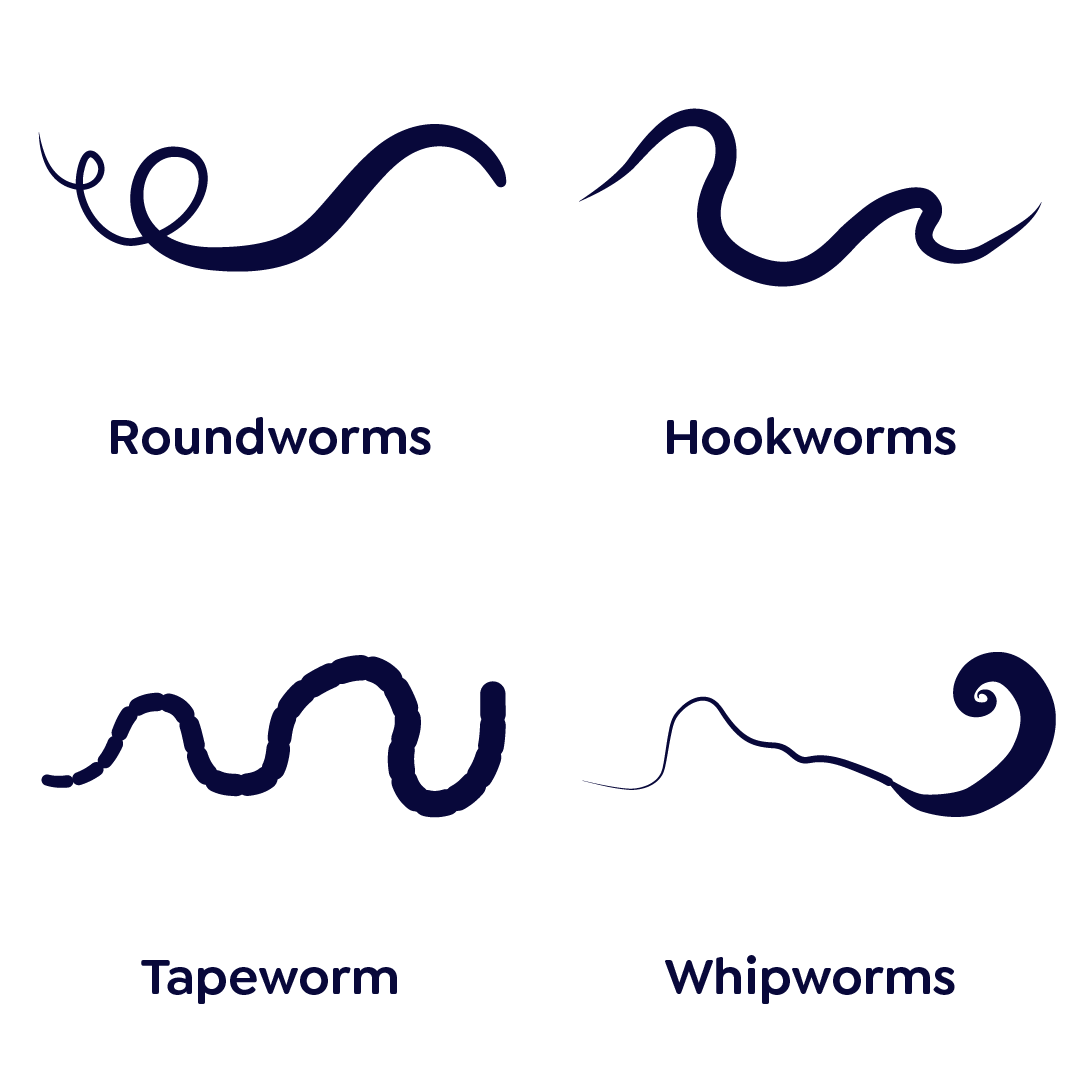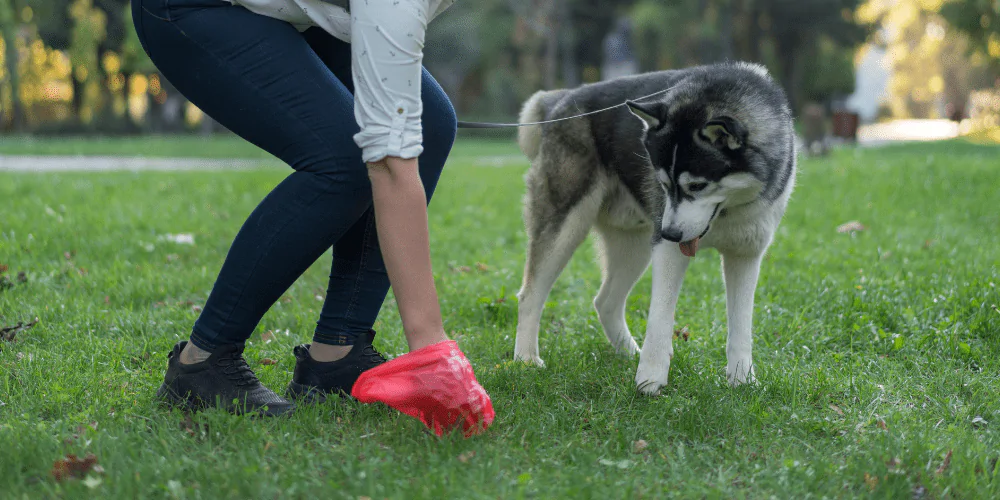
Worming your dog: What you need to know

Dr Lily Richards BSc (Hons) BVSc MRCVS
29 November 2023 | 4 minutes read
Keeping your pup healthy and happy means regularly protecting them against nasties like ticks and worms.
Expert vet Dr Lily Richards explains how dogs get worms, how to spot them, and ways to get rid of them.
- How do dogs get worms?
> Why should you worm a dog? - How do I know if my dog has worms?
> What do dog worms look like? - How long do dog worming tablets take to work?
- How to prevent your dog from getting worms
> How often should you worm a dog? - Other questions about dog worming
> Can worming tablets make a dog feel unwell?
> Can you worm a pregnant dog?
> Can you catch worms from dogs?

How do dogs get worms?
Dogs can pick up worms in many ways but the most common ones are:
- Drinking contaminated water
- Eating the faeces of infected animals
- Picking up eggs in grass and dirt
Mums can also pass on worms to their puppies during pregnancy or while nursing.
> Why should you worm a dog?
Leaving worms untreated can cause a range of health issues for your pup, from gut problems to anaemia.
In some cases – particularly in puppies with immature immune systems, older dogs, and those with weakened immune systems – having worms can be fatal. So it’s important to deal with worms as fast as possible and make sure you’re doing regular preventative treatment.

How do I know if my dog has worms?
Signs that your pup might be carrying worms include:
- Worms in their faeces or around their bottom
- Increased appetite
- Weight loss
- Weakness
- A dull coat
- Diarrhoea
It’s not always easy to tell if your dog has worms, so always speak with your vet before your pup’s symptoms worsen.
> What do dog worms look like?
There’s a wide variety of worms that can infect your dog. The ones you’re most likely to see are:
- Roundworms – these are thin and long, similar to spaghetti
- Tapeworms – these look like small grains of rice
- Hookworms – these are tiny and thread-like
- Whipworms – these have a whip-like shape
Don’t try to self-diagnose what worms your dog is carrying. Carefully get a sample and bring this to your vet who can recommend the best treatment.

How long do dog worming tablets take to work?
How long it takes to treat worms varies based on the type of worm and severity of the infestation, which your vet can advise on.
In most cases, it can take up to 24 hours for the tablets to kill all existing worms in your dog’s system.
But it’s important to remember that this won’t stop future infestations, which is why your pup needs regular worm treatments. And don’t forget to regularly treat them for fleas as they can carry tapeworm eggs.

How to prevent your dog from getting worms
A consistent worming treatment is the best line of defence against these wriggly nasties.
But there’s also other ways you can help reduce the risk of infestation:
- Clean up after any dog messes
- Don’t let your pup eat any faeces in the garden or on walks
- Disinfect food and water bowls daily
- Don’t leave water bowls outside
- Keep your house clean using pet-safe disinfectant
- Make sure all pets in the household are wormed
> How often should you worm a dog?
The timing of worming depends on your dog’s age, lifestyle, and the risk of coming into contact with them.
Puppies should be wormed every two weeks until they’re 12 weeks old, then monthly up to 6 months old.
Adult dogs should be wormed at least every three months or more frequently if recommended by a vet. This is dependent on lifestyle and the risk of picking up worms.
Your vet will give you the right worming schedule to suit your individual pup.

Other questions about dog worming
> Can worming tablets make a dog feel unwell?
Sometimes worming tablets can have side effects like vomiting and diarrhoea but these should be mild and not last long.
Talk to your vet if you’re worried that your dog is having a bad reaction to their worming treatment.
> Can you worm a pregnant dog?
Yes, you can safely worm your expecting girl with a treatment specifically designed for pregnant dogs.
Most vets recommend worming a pregnant dog:
- Before mating
- Once they’ve passed 45 days of pregnancy
- After they’ve given birth
Some worming programmes are given throughout pregnancy, so talk to your vet about the best choice for your pup.
> Can you catch worms from dogs?
While some types of worms can be transmitted from dogs to humans, this isn’t common. Most worms that affect dogs can’t survive in humans.
But it’s always good to practice positive hygiene habits when handling your dog and regularly worm them to reduce the risk of transmission.
Take care of your favourite four-legged pal with flexible dog insurance from Petsure.


